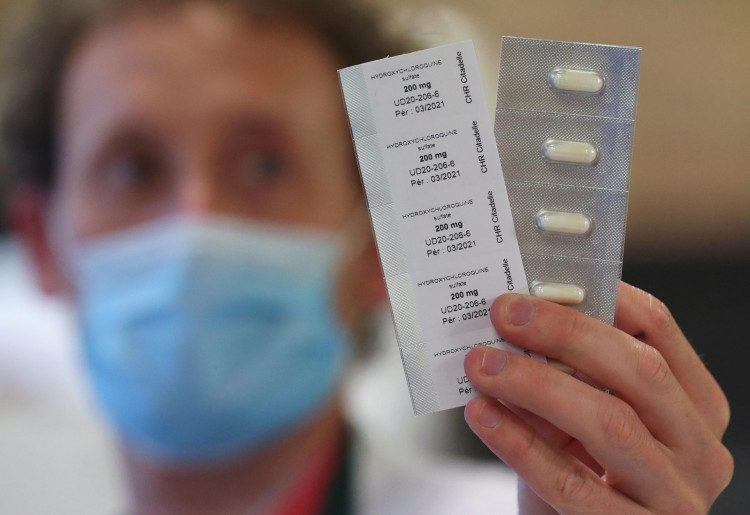Medical studies, scholarly research and scientific review show that the Trump-backed hydroxychloroquine has substantially no effect for some patients with Covid-19.
Proof of the drug's efficacy in the treatment of COVID-19 has been scant. Recent findings have prompted the Food and Drug Administration to caution against the use of hydroxychloroquine outside a hospital setting last month, just weeks after the vaccine was approved for emergency use.
Hydroxychloroquine is a drug that the US president promoted as a "game changer" in the battle against Covid-19. "The nice part is it has been around for a long time," Trump said of the anti-malaria vaccine in March.
Researchers observed that in a randomized, controlled study in China of 150 patients with mild to moderate COVID-19, patients on hydroxychloroquine did not get better substantially faster than those not treated with the drug. Adverse effects in patients taking the malaria drug were also higher.
An observational analysis of patients in France showed that, in patients hospitalized with COVID-19 pneumonia who needed oxygen, the medication did not significantly reduce admission to intensive care or death.
In the first of the two new studies published in the BMJ on May 14, in 181 adults hospitalized with pneumonia due to COVID-19 who needed oxygen, researchers in France assessed the efficacy and protection of hydroxychloroquine compared with standard treatment.
Among those patients, 84 received and 97 did not receive hydroxychloroquine within 48 hours of admission. Drug therapy using hydroxychloroquine did not substantially decrease admission to intensive care or mortality within seven days, or acute respiratory distress syndrome within 10 days.
The anti-malaria medication was also hyped as a miracle cure by Marseille-based professor Didier Raoult, and became a hot topic for conspiracy theorists who believed that an inexpensive and successful cure was intentionally withheld by the French government and pharmaceutical companies.
Alarmed by an increasing cache of data linking the anti-malaria drug to severe heart issues, several drug safety experts are now calling on the government to take even more concerted steps to prevent its use. Others also called for the FDA to revoke its permission for emergency use, despite the known risks to hydroxychloroquine.
In another study, led by Qing Xie, from the Shanghai Jiao Tong University School of Medicine 's Department of Infectious Disease, was conducted in China and included 150 adults hospitalized mostly with mild or moderate COVID-19. In addition to clinical care, half received hydroxychloroquine and the rest received standard treatment only.






